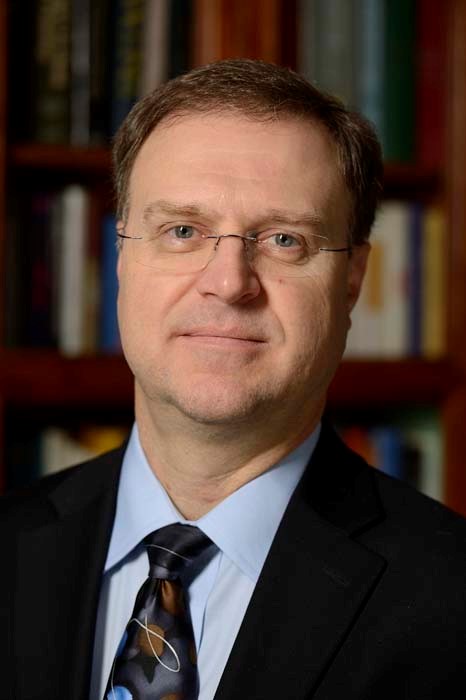David H. Peters
 DAVID H. PETERS, MD, MPH ’89, DrPH ‘93, the Edgar Berman Professor of International Health and chair of the Department of International Health in the Bloomberg School of Public Health, first came to Johns Hopkins University in 1988 as a resident in general preventive medicine and went on to receive his Master of Public Health and doctoral degrees. After earning his Hopkins degrees, Dr. Peters was employed at the World Bank where he worked on health sector programs and policy initiatives in West Africa and India, pioneering the Sector Wide Approach (SWAp) for developing national health policies with integrated implementation and evaluation strategies led by Ministries of Health. He conducted the largest country health study ever undertaken by the Bank, which was carried out in India, and led the analytic and policy work on health services in low- and middle-income countries, leading him to publish several books, including Better Health Systems for India’s Poor and Improving Health Service Delivery in Developing Countries: From Evidence to Action.
DAVID H. PETERS, MD, MPH ’89, DrPH ‘93, the Edgar Berman Professor of International Health and chair of the Department of International Health in the Bloomberg School of Public Health, first came to Johns Hopkins University in 1988 as a resident in general preventive medicine and went on to receive his Master of Public Health and doctoral degrees. After earning his Hopkins degrees, Dr. Peters was employed at the World Bank where he worked on health sector programs and policy initiatives in West Africa and India, pioneering the Sector Wide Approach (SWAp) for developing national health policies with integrated implementation and evaluation strategies led by Ministries of Health. He conducted the largest country health study ever undertaken by the Bank, which was carried out in India, and led the analytic and policy work on health services in low- and middle-income countries, leading him to publish several books, including Better Health Systems for India’s Poor and Improving Health Service Delivery in Developing Countries: From Evidence to Action.
In 2002, while maintaining ties to the World Bank, he returned the Bloomberg School of Public Health as a faculty member, and assumed leadership of the school’s Health Systems Program.
Since 2005, he has been the director of Future Health Systems (FHS): Innovations for Equity. FHS is a consortium of researchers from Uganda, Nigeria, India, China, Bangladesh, Afghanistan, the UK, and the USA, which is aimed at generating knowledge to shape health systems to benefit the poor. He developed the first national Balanced Scorecard for primary health care to, which has formed a basis for funding and management in Afghanistan for over 10 years – his research also provided the basis to abolish of user fees there.
Dr. Peters has played a leading role in the area of implementation research by conducting influential research in very difficult environments, developing its methodologies and theories, and incorporating complex adaptive systems into public health. His research focuses on improving health systems performance, particularly for the poor in low-income countries, and solving policy issues that affect many aspects of public health to improve health conditions for poor and vulnerable populations around the world.